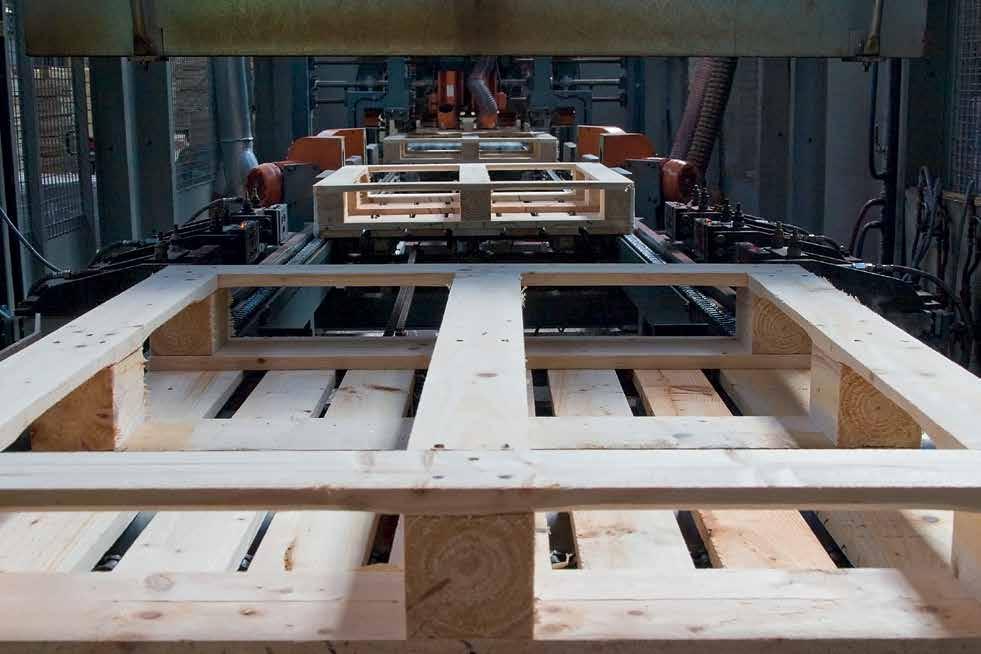PLANTING
Will government follow Confor’s roadmap for woodland creation in England and Wales... or have they lost their way? Confor’s Caroline Ayre and Anthony Geddes explore the steps needed to deliver on tree planting targets in England and Wales
N
ew planting is growing to be an angst-inducing topic to industry, government and environmentalists, and more recently has been the subject of competition in the election pledges. The UK Committee on Climate Change directed the previous Westminster administration to plant 27,000ha per annum. With just over a third of this being delivered in Scotland, we ask: can this successful model be adopted to achieve the same south of the border? England and Wales are only able to bask in the glow of the leading light that Scotland is shining on UK afforestation. In 2020 alone, Scotland is set to beat the 30 million tree planting commitment made in the Conservative manifesto. The required
mix of grit, determination and funding has created what some would call a perfect storm for tree planting. What are the steps needed to deliver on tree planting targets in England and Wales? Forestry and timber processing accounts for £1 billion GVA and 25,000 jobs in the Scottish economy. It is of equal significance to the English and Welsh rural economies, accounting for £680m (estimated) and £520m, respectively. The value of the forestry and timber industry has not yet been sufficiently appreciated by either of these two administrations. The most significant driver for tree planting has come from the climate change movement and decarbonisation. But the resource of timber as an industrial product and the benefits that harvested wood products deliver through carbon storage and material substitution, although fully understood, has not been embraced by Westminster or the Senedd. This fundamental loss of the link between tree and timber may be at the core of the difference in attitudes.
Table 1: Actual planting (hectares)
England Wales Broadleaf Conifer Broadleaf Conifer
Total
2015
100
2300
0.0
100
2016
0.0
800
0.0
100
2500 900
2017
100
100
200
200
600
2018
200
1300
100
100
1700
2019
400
1000
300
300
2000
Table 2: What needs to be planted to meet Confor’s planting targets, assuming 50/50 mix of productive Broadleaf and Conifer (hectares)
England Wales Broadleaf Conifer Broadleaf Conifer
Total
2020-2022
4500
4500
2000
2000
13,000
2023-2025
9500
9500
7250
7250
33,500
2026-2028
13,500
13,500
11,250
11,250
49,500
2029-2030
10,000
10,000
9000
9000
38,000
6 FORESTRY & TIMBER NEWS • December 2019
Where are we trying to get to? In response to UK planting achievements to date (table 1) in summer 2019 Confor developed its Think Global, Plant Local campaign which created a target of 40,000ha per annum by 2030 (table 2). This is based on what is realistically achievable from seed stock, nursery capacity and the workforce, given required funding and land availability. This target has been widely acknowledged as achievable and perhaps tellingly the Liberal Democrat manifesto pledge gets pretty close to the numbers that Confor published earlier in 2019 (fig 3).
Political climate With political change and the outcome of Brexit still hanging over UK land use policy, the political environment has become even more challenged. Within the last Westminster parliament a strong policy statement was issued with a clear commitment to support funding for woodland creation through transition from the current Rural Development Programme (Countryside Stewardship) into the new Environmental Land Management Scheme. The current administration in Wales CONFOR.ORG.UK























